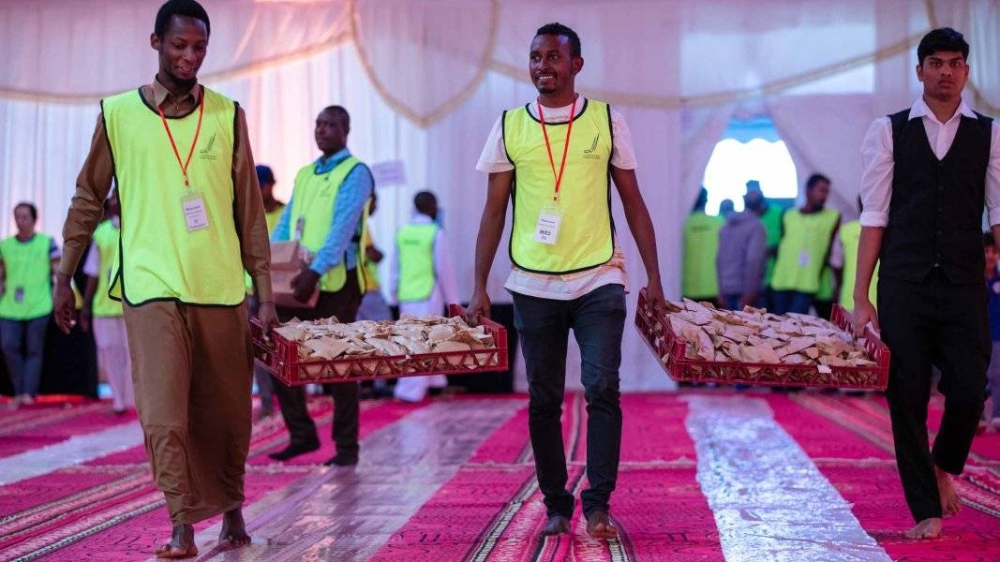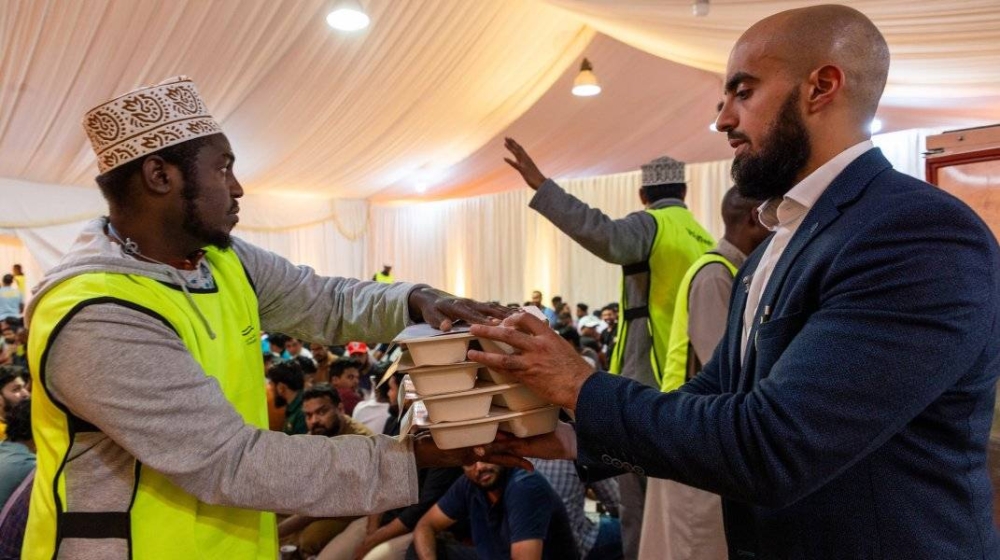This year, the community Iftar at Qatar Foundation’s Minaretein (Education City Mosque) was committed to promoting and exemplifying the values of moderation and ecological stewardship by tackling the food waste challenge, and hosting a zero-waste Iftar, according to an article published on the Qatar Foundation (QF) website.
“Ramadan is a time of spiritual reflection and self-improvement; an opportunity to reconnect with the inherent Islamic values of moderation and ecological stewardship (khalifa), re-evaluate the way we live our lives and to think about bad habits we want to leave behind and new habits we want to embrace,” said Sulaiman Timbo Bah, community engagement and outreach co-ordinator at Minaretein.
Zero waste is the principle of minimising waste production as much as possible, then composting, reusing or recycling any waste that is generated.
Explaining the idea behind the zero-waste Iftar, Simon Jones, engagement and activation expert at QF, said: “Our primary focus was not to generate waste in the first place. To do this, we started by reducing portion sizes compared to previous years – this has been a great success. Almost 100% of people eat the entire portion, and the few that don’t are encouraged to take their leftovers home.”
Additionally, to reduce packaging waste, only one multi-compartment box was used per person. Typically, each person gets 3-4 containers with different items; this year, one container, made of eco-friendly packaging, was used at Minaretein. For dessert, each person gets one whole fruit, like a banana or an orange, meaning no packaging is needed to hold the fruit and no gloves are required to cut or distribute it.
Other measures taken to reduce waste included using reusable table covers that are cleaned and reused, instead of single-use disposable ones. And, instead of distributing water bottles every day, water dispensers were available and each person was given a paper cup that they can refill as needed.
“These might sound like small changes when looked at individually, but given we have anywhere between 1,200 and 1,500 people breaking their fast each day, over the course of 30 days these small changes have a considerable impact,” said Jones. “Imagine if this zero-waste Iftar could be replicated across all Iftar tents across the country - the waste savings would be enormous.”
The Minaretein Iftar is also raising awareness on how to reduce waste and increase responsible consumption. Every day, around 20 minutes before Iftar, bite-sized sustainability sessions were delivered in English, Hindi/Urdu, Arabic, Malayalam and Swahili. They highlight the importance of sustainability from an Islamic perspective, inform guests that once their Iftar finishes, they need to segregate wet waste (organic waste) from dry waste (packaging waste) and discard it in the right bins so it can then be composted or recycled.
Aisha Ahmed, a community member who has attended the Iftar several times, added: “Islam is not just a set of beliefs. It is a lifestyle, and this is something I feel a lot of us don’t recognise.
“Personally, I’ve always viewed religion and environment as two separate things, but it’s initiatives like this zero-waste Iftar that have helped me make that important connection.

People taking part in Iftar

Food packages being brought for Iftar.

An official giving directions to others.

Food packages are distributed.
